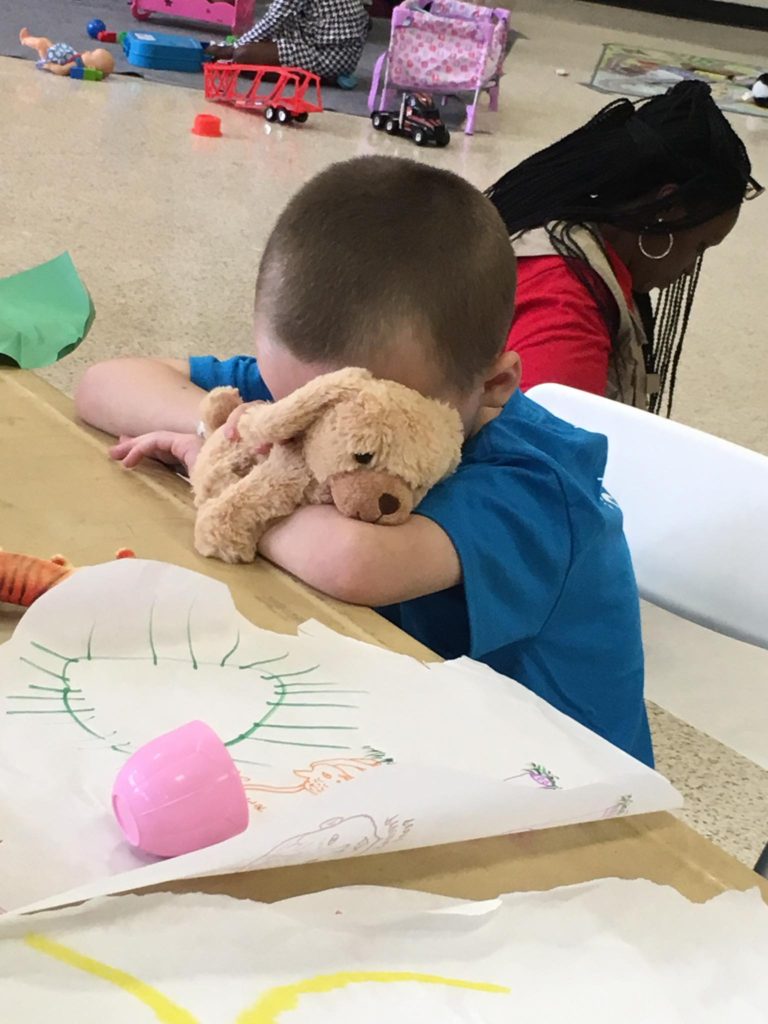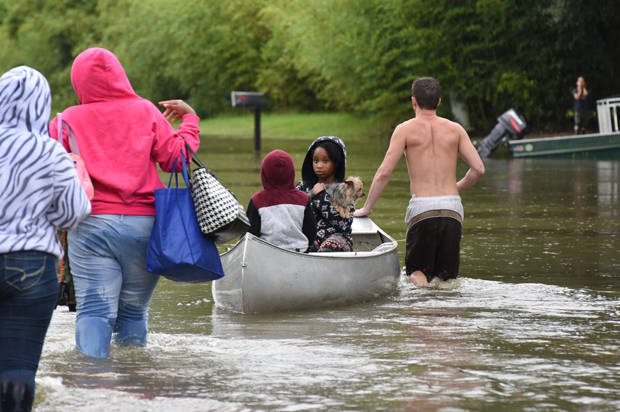Throughout the area, families are dealing with enormous challenges and the stress levels that come along with them. In my role as psychosocial lead for Save the Children, I’m spending time at the shelters working to help families who have no other place to go. The moms I talked to today were worried about so many things that the first thing I wanted to do for them was help them find ways to cope.
I started by really listening to them and acknowledging all the fears and emotions they are dealing with. That went a long way. If you are feeling overwhelmed and stressed, please try to find someone who can do the same for you. And if you can’t, try writing down your feelings, taking a walk, or using other strategies that have worked for you at other stressful times in your life.
Self-care is so important. One of the moms I spoke with today had a young baby and her husband had just been abandoned them after a fight. He had taken the few belongings they had salvaged with him, so the first thing we did was help her find a change of clothes for herself and her child. But then we talked through her other challenges and what she could do to feel calmer and more equipped to start taking them on one at a time.
I connected this lovely woman with some other moms and they quickly offered each other emotional support. Together we discussed how the stress they were feeling as moms could easily transfer to their children. They realized it wasn’t selfish at all to look after themselves, and how important it is for their little ones.
Certainly this is a scary and uncertain time for many children. They look to their parents and caregivers for guidance and reassurance, but sometimes we aren’t sure of the best way to manage. Here are basic ideas I hope can help.

10 Tips to Help Kids Cope with Disasters
- Limit TV time. Watching television reports on disasters can overwhelm younger children who may not understand an event is being replayed and instead think the disaster is happening over and over again. Overexposure to coverage of the events affects teenagers and adults as well.
- Listen to your children carefully. Emotional stress results in part when a child cannot give meaning to dangerous experiences. Begin a dialog to help them gain a basic understanding that is appropriate for their age and responds to their underlying concerns.
- Give children reassurance. Let them know that if any emergency or crisis should occur, your primary concern will be their safety. Make sure they know they are being protected.
- Be alert for significant changes. Be aware of changes in sleeping patterns, eating habits,
concentration, wide emotional swings or frequent physical complaints without apparent illness. They will likely subside within a short time but if prolonged, we encourage you to seek professional support and counseling. - Expect the unexpected. As children develop, their intellectual, physical and emotional capacities change. Younger children will depend largely on their parents to interpret events, while older children and teenagers will get information from a variety of sources that may not be as reliable. While teenagers seem to have more adult capacities to recover, they still need extra love, understanding and support to process these events.
- Give your children extra time and attention. They need your close, personal involvement to comprehend that they are safe and secure. Talk, play and listen to them. Find time to engage in special activities for children of all ages.
- Be a model for your child. Your child will learn how to deal with these events by seeing how you deal with them. Base the amount of self-disclosure on the age and developmental level of each of your children. Explain your feelings but remember to do so calmly.
- Watch your own behavior. Make a point of showing sensitivity toward those impacted by the disaster. This is an opportunity to teach your children that we all need to help each other.
- Help your children return to normal activities. Children almost always benefit from activity,
goal orientation and sociability. Ensure that your child’s school environment is also returning to normal patterns and not spending great amounts of time discussing the crisis. - Encourage your child to do volunteer work. Helping others can give your child a sense of control, security and empathy. In the midst of crisis, adolescents and youth can emerge as active agents of positive change.
We are sharing these tips with parents in the shelters when they bring their kids to our child-friendly spaces. It’s wonderful to see the children play, smile and have fun again, but we all know there is so much more work to be done to help these children and their families bounce back.
If you’d like to support our response and recovery work, please consider donating at www.SavetheChildren.org/Gulf-Floods.
Thank you!
Anjana Dayal de Prewitt


